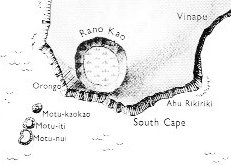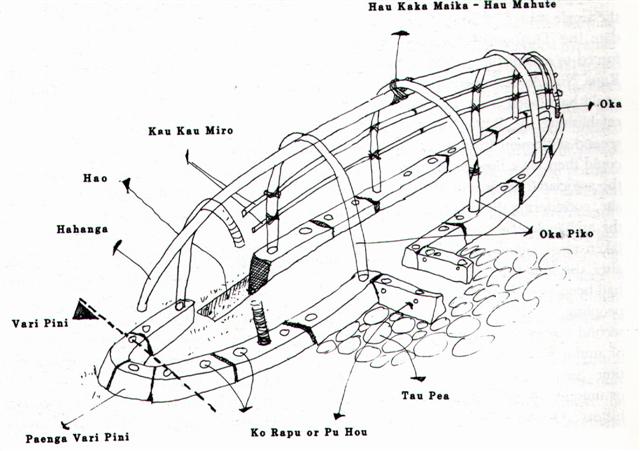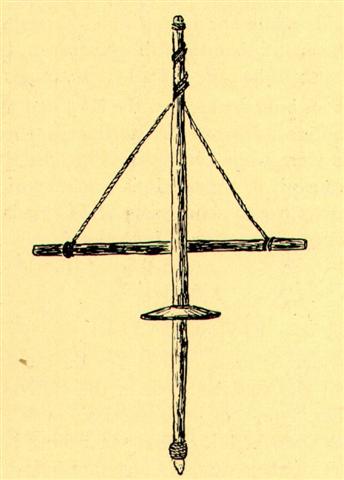4. So they went to Te Manavai to come in harmony with time:
Te Manavai is not visible on any of my Easter Island maps, but everyone knows where Rano Kau is located. It probably represents the 'entrance hole' to the interior of the 'land' (we still move in time and not in normal geography).
The small holes in the sides of the entrance stones are Pu Hou, it says. And they are explained by pointing to Ko Rapu (Sun in his ghostly phase, Akahanga and Hatinga Te Kohe):
The idea seems to be to say that the ghostly phase of Sun is integrated into the entrance of the house and that the cycle of Sun has 8 holes (beginning with Manavai and ending with Hatinga Te Kohe). Pu Hou can be regarded as the reversal of ra-pu (Sun, ra, entering a hole, pu):
By drilling a pair of fresh holes (pu-hou) in the side of the stones Sun will be able to come back again. We remember the mysterious drilling of Ira from earlier: ... After the young kinsmen had gone down to surf, Ira got up, picked up the mat with the treasure, unfolded the mat, pulled out the mother-of-pearl ornament (reipa), folded the mat again tightly, and left it on the ground. Ira got up, climbed up, went on, and reached Ruhi Hepii. He drilled a hole into the stone. After the hole was deep enough, he took the ornament (rei) and put it into the hole so that the shiny side (rapa) was turned outward. He gave the place the name 'Ruhi Hepii' ...
(Picure from Peter H. Buck, Material Culture of Kapingamarangi.) Far south (toga) - i.e. at winter solstice - the sky dome is turning around as when someone is drilling, or milling: ... Now Frodhi happened to be the owner of a huge mill, or quern, that no human strength could budge. Its name was Grotte, 'the crusher'. We are not told how he got it, it just happened, as in a fairy tale. He traveled around looking for someone who could work it, and in Sweden he recruited two giant maidens, Fenja and Menja, who were able to work the Grotte. It was a magic mill, and Frodhi told them to grind out gold, peace and happiness ... The explorers made camp (did not walk any further) and they construced a house. Maybe such houses (in the sky) are built at winter solstice while those down on earth are constructed at summer solstice:
Work ceases in the fields and people go surfing (garu). That was the time when Ira drilled holes. |
|||||||||||||||||||||||||||


